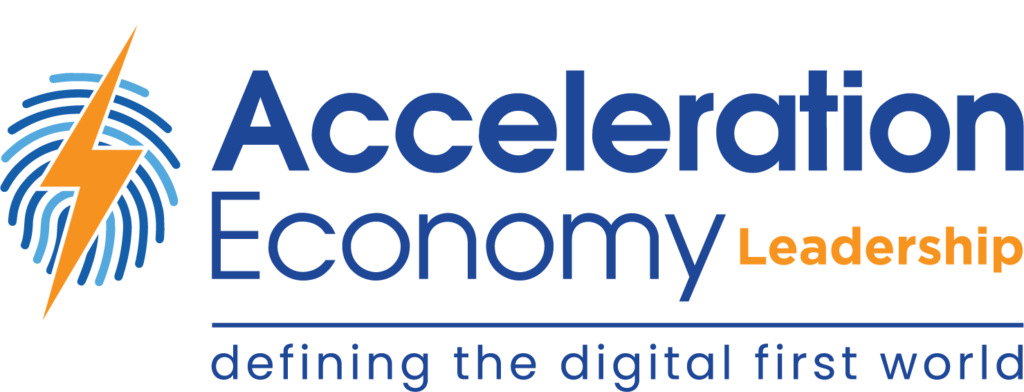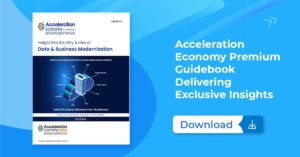In recent years, the healthcare industry has transformed dramatically by adopting cloud computing and industry-specific clouds. Combining that with hyperautomation and data sharing has resulted in numerous productivity benefits and improved care for healthcare providers and patients.
A case study conducted by the Office of the National Coordinator for Health Information Technology (ONC) found that data sharing enabled by cloud-based Fast Healthcare Interoperability Resources (FHIR) services was instrumental in facilitating a nationwide COVID-19 vaccination effort. FHIR-enabled apps were used to manage patient information, coordinate vaccine distribution, and monitor adverse reactions.
Another example is a study conducted by the Duke Clinical Research Institute, which found that FHIR-enabled remote monitoring apps helped patients with hypertension manage their blood pressure more effectively. The apps provided patients with personalized information about their condition, medication reminders, and other tools to support self-care.
In this analysis, we’ll explore how industry cloud implementation impacts clinical processes and other core functions in the healthcare industry.
Why Patient Healthcare Data Must Be Widely Accessible
One of the main obstacles to streamlining innovative research is bridging the gap between the research environment and the clinical environment, particularly in regard to accessing patient health data from many sources at the same time. If researchers are unable to access all patient data in a timely manner, it can cause several problems, including:
Delayed or halted research: Researchers rely on access to patient data to conduct research. Without access to this data, research projects may be delayed or halted, leading to slower progress in the development of new treatments, diagnostics, and therapies.
Incomplete or biased results: If researchers only have access to limited patient data, or if the data is biased in some way, research results may be incomplete or biased. This can lead to incorrect conclusions, which may have serious consequences for patient care.
Missed opportunities for discovery: Patient data is a valuable resource for discovering new insights into disease processes, treatment efficacy, and patient outcomes. Without access to this data, researchers may miss opportunities for discovery, which could delay the development of new treatments or interventions.
Reduced collaboration and innovation: The ability to share patient data across institutions and countries is critical for fostering collaboration and innovation in healthcare research. If patient data is siloed or restricted, it can hinder collaboration and slow progress toward new discoveries.
Increased costs: Limited access to patient data can increase the costs of healthcare research. Researchers may need to spend more time and resources collecting their own data, rather than using existing data sources, which can be more time-consuming and expensive.
Which companies are the most important vendors in data? Click here to see the Acceleration Economy Top 10 Data Modernization Short List, as selected by our expert team of practitioner-analysts
How Industry Clouds and FHIR Improve Healthcare Research
Industry clouds for healthcare, and cloud services from the hyperscalers (AWS, Azure, Google Cloud), all provide platforms for ingesting, storing, sharing, and analyzing large amounts of complex data using FHIR. This set of standards for sharing electronic healthcare information enables researchers to access and collaborate on diverse data including electronic health records (EHR), medical imaging, genomic sequencing, and research results.
FHIR provides researchers with access to a standardized, machine-readable format for patient data, building on previous standards (example: HL7 CDA V2 and V3), and it has evolved to provide data interoperability in cloud environments. This aids researchers in gathering the data they need for their studies and ensures that the data is accurate, consistent, and easily accessible.
More importantly, it enables researchers and healthcare organizations to create solutions that close the gap between the research environment and the clinical healthcare environment.
Improved data sharing and collaboration, facilitated by FHIR, has played a critical role in advancing healthcare research and development, particularly in the fight against diseases like COVID-19 and cancer. One example is the COVID-19 Therapeutics Accelerator (CTA), a global initiative that established a cloud-based platform for real-time data sharing on potential COVID-19 therapies.
The CTA has enabled collaboration among leading pharmaceutical companies, academic institutions, and philanthropic organizations to accelerate development of COVID-19 treatments. Through improved data sharing, the CTA has supported the development of monoclonal antibody treatments that have been shown to reduce the risk of hospitalization and death in high-risk patients.
Another example is the Beacon Network, a cloud-based platform that enables researchers to access and share genomic and clinical data from cancer patients. The Beacon Network provides a comprehensive view of cancer biology and treatment options through data sharing on genetic mutations and clinical outcomes. The platform has enabled researchers to identify new cancer biomarkers and potential drug targets, accelerating development of new cancer treatments and therapies.
How Cloud Interoperability Optimizes Healthcare Finance
Industry cloud interoperability with finance systems is already significantly impacting the healthcare payor/payee sector. Overall, the interoperability of industry cloud and finance systems can help to create a more seamless, connected healthcare payment system that benefits all stakeholders. Here are a few examples:
Improved Efficiency
One major benefit of healthcare industry clouds is improved efficiency and accuracy in financial processes, such as claims processing, billing, and payment management. This can reduce administrative costs and errors, leading to faster, more reliable payments and improved cash flow.
One company that is currently utilizing healthcare industry cloud interoperability to improve its financial operations is Athenahealth, which offers a cloud-based platform that integrates electronic health records (EHRs), practice management software, and revenue cycle management tools. The platform enables healthcare providers to manage their financial operations more efficiently by automating administrative tasks, improving billing accuracy, and reducing claim denials. Athenahealth’s platform also integrates with other industry cloud solutions to facilitate seamless data exchange and interoperability across different healthcare systems.
Enhanced Security and Compliance
Interoperability between healthcare industry cloud and finance systems can help to enhance security and compliance by enabling secure data sharing, reducing the risk of fraud and errors while also driving innovation in a rapidly changing industry.
For example, Anthem, one of the largest health insurance companies in the U.S., has implemented IBM Cloud‘s industry cloud software to improve its data storage, management, and security capabilities. By using IBM Cloud’s industry cloud technology, Anthem can enhance its security posture, reduce the risk of data breaches, and meet regulatory compliance requirements. It also enables Anthem to improve its operational efficiencies and agility, as it can rapidly deploy new services and applications on the cloud platform.
How Cloud Drives Retail Healthcare for Pharmacies
Healthcare industry cloud technology is playing a role in the retail pharmacy industry as it enters the primary care field. Retail pharmacy chains are expanding their healthcare services beyond the traditional pharmacy counter, with a focus on offering primary care services to their customers. Industry cloud technology, especially FHIR-enabled data sharing, is enabling retail pharmacies to better manage patient data, streamline clinical workflows, optimize supply chains, and coordinate care with other primary care providers.
Consolidated and Streamlined Operations
Through industry cloud technology, retail pharmacies can integrate patient data from multiple sources, including electronic health records (EHRs), health monitoring devices, and other clinical systems. This integration enables retail pharmacies to provide a more comprehensive view of patients’ health, which can lead to better-informed clinical decision-making and improved patient outcomes.
Industry cloud solutions for retail pharmacies can also streamline operations by offering features such as automated prescription processing, electronic health record integration, inventory management, and data analytics to optimize supply chains. By utilizing these tools, retail pharmacies can reduce costs, improve efficiency, and deliver better patient care. Additionally, industry cloud solutions can provide real-time updates and insights on sales, inventory, and customer behavior, enabling retail pharmacies to make data-driven decisions to optimize their operations.
Improved Data Management
Industry cloud solutions, particularly those supporting FHIR, can improve data management for retail pharmacies in several ways. First, they can provide a centralized platform to store, manage, and access data from various sources such as EHRs, point-of-sale systems, and supply chain management software. This can help pharmacies reduce data silos and improve data accuracy. By enabling better medication management, easier prescription refills, enhanced communication with healthcare providers, and access to health information, FHIR-optimized solutions can ultimately improve health outcomes for patients in the retail pharmacy industry, especially for those offering primary care services.
As evidenced by the aforementioned Anthem and IBM Cloud partnership, industry cloud solutions can provide secure and compliant data management, ensuring that sensitive patient information is protected and regulatory requirements are met. This can help pharmacies avoid costly data breaches and regulatory penalties.
FHIR simplifies EHRs for CVS Health, which uses Epic software as its primary EHR platform. Epic’s system enables healthcare providers to manage patient health records, including medical history, diagnosis, treatments, and prescriptions. By using a single EHR across its services including pharmacy, clinical care, and insurance, CVS Health provides a more connected and personalized healthcare experience for its customers who are already using Epic.
Conclusion
Healthcare industry cloud technology is poised to radically transform research, payor/payee finance, retail pharmacy operations, and more. Enhanced interoperability, more precise data analysis using AI, improved patient access, and B2B hyperautomation are all making it clear to the C-suite that industry cloud software is set to become the new standard for how innovative digital health is delivered for all stakeholders.
Want more tech insights for the top execs? Visit the Leadership channel:









